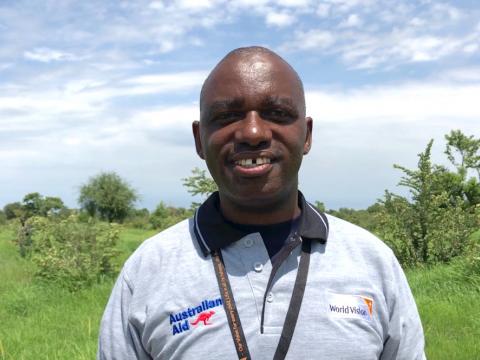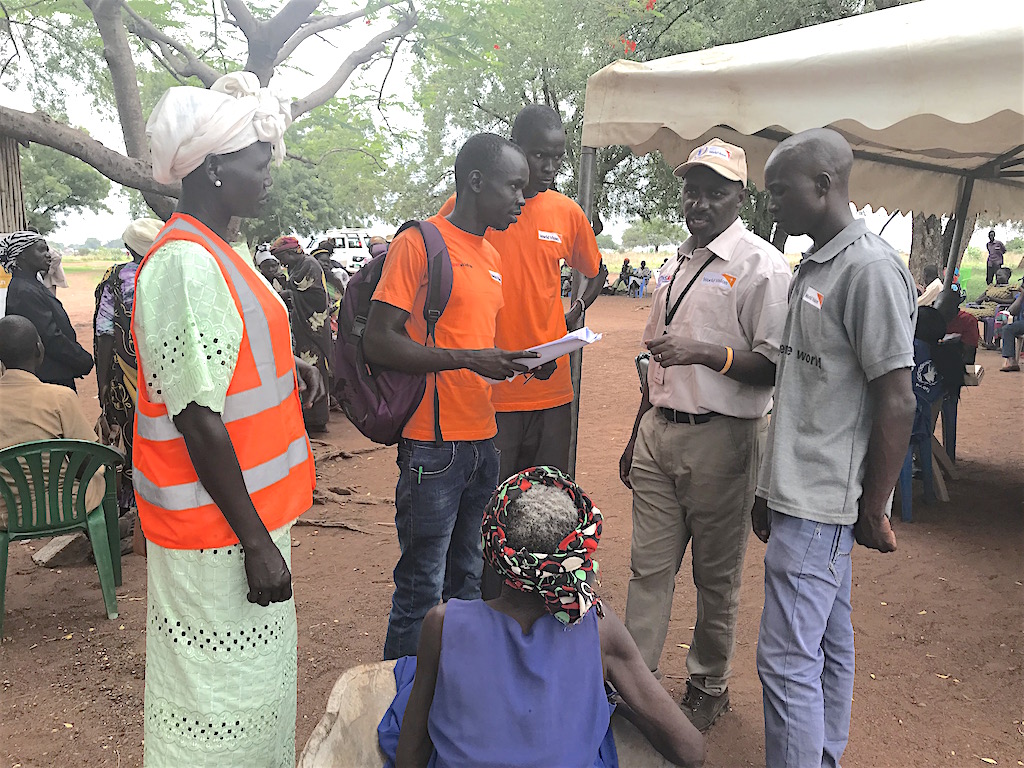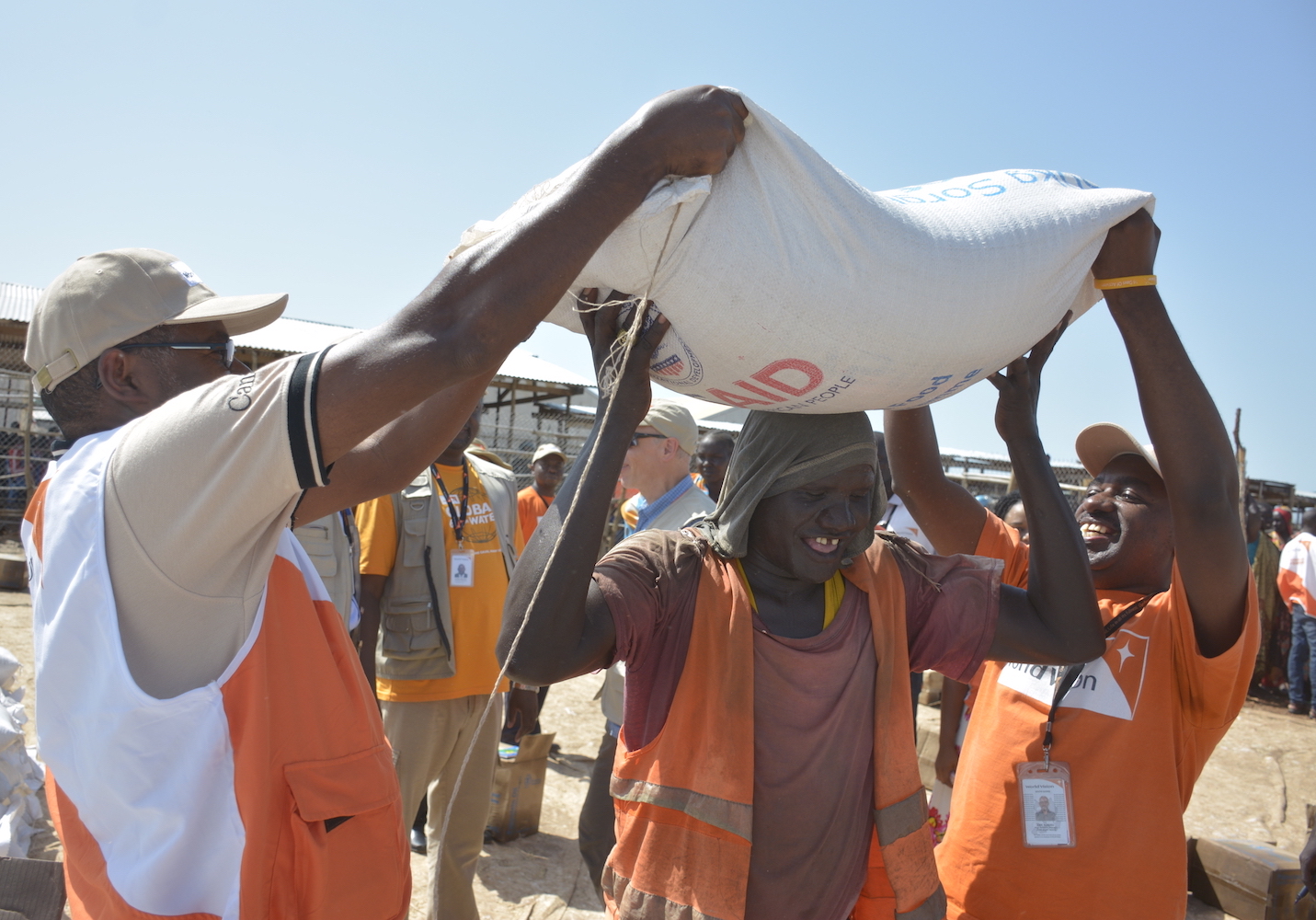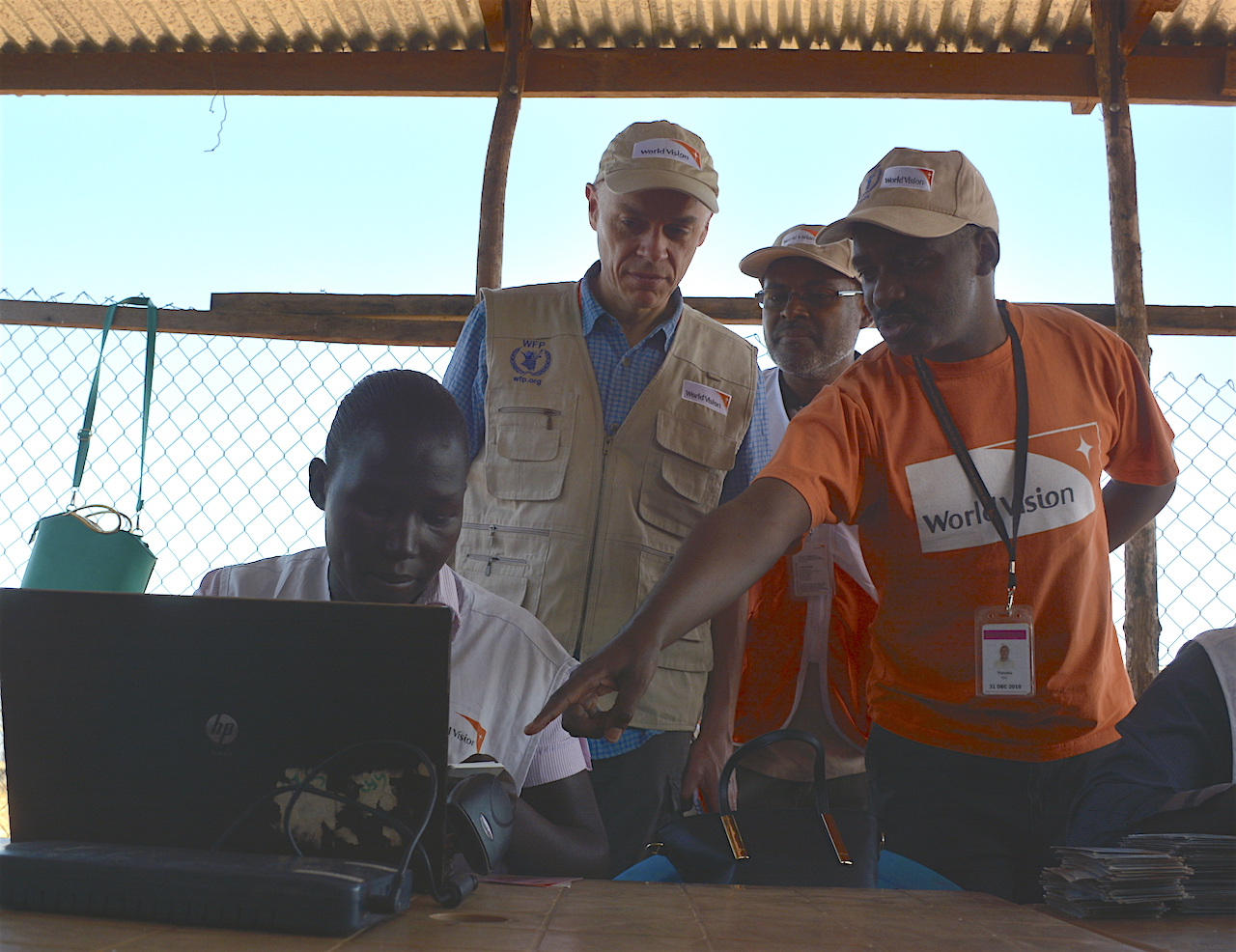Humanitarian work in dangerous places often gets your heart racing; it is not for the faint-hearted

By Eric Yunusu, Food and Cash Programme Manager
My 15 years as a humanitarian worker started in Nyarugusu Congolese Refugee Camp located in the western part of Tanzania. I stayed there for close to five years before moving to Darfur in Sudan for another five years and the past five years in South Sudan. In all these countries, I met thousands of suffering children, women and men.
When I arrived in South Darfur in 2008, we were assigned in various operational areas and some were extremely dangerous. Just imagine going through almost 14 checkpoints along the highway which is less than 100 km to serve the beneficiaries. Every time you are on the road, you could expect an incident, whether you are in the convoy or with UN or other partners.
Eric talks with his team and some women-beneficiaries at World Vision's cash assistance activity in Juba.
One day sometime in 2009, we arranged for a field trip, got all the security clearances and followed the security protocols. Managing to arrive safely in Manawashe – located on the north of South Darfur, the staff and communities were very happy. They expressed relief that I made it despite the insecurity along the way and in the area where we work. It was my first time and I was equally very happy because I was able to visit where my team worked and lived.
The relief did not last long. On our way back, along with the convoy of two World Vision-hired vehicles, we were ambushed. The flags in our cars indicating we were World Vision did not stop the attack. Our first car was shot at. The driver and one staff got injured but fortunately they survived. This incident did not stop me from working for the people of Darfur and my succeeding fragile context assignments.
On December 2013, I was already working in South Sudan based in Juba when another incident tested my resilience. The country was in the brink of war and we were on lockdown for at least four days. Nobody was allowed to go outside the building where we live. We were indoors as we listened with horror at the sounds of heavy gunfire in the city.
Trying a hand at the food distribution with World Vision's Country Programme Director Mesfin Loha.
A humanitarian worker’s life is a call of duty and a commitment. Majority of us are separated from our families if the assignments are stipulated as non-family posting. Even as organizations provide regular breaks, this still requires a lot of sacrifice.
Humanitarian work exposes us to very remote and very dangerous locations that are not for the faint-hearted. Some people might wonder how do we survive this work condition? For me, it is because I am serving God and serving His people. If He allows us to go to places, we will go. I believe He will protect us and takes care of us.
When I see a healthy and nourished child, it makes me happy. When I hear the changes in attitude and behavior of men and women, the improvement in food security and livelihoods of the communities because of our work, it fulfills me. These are what I came here for as a humanitarian.
I learned over time that with humanitarian work, anything could happen. You never even know when and how it will happen. It is a sacrifice and test of courage for humanitarians to decide to work the world’s most insecure places. This is the call I signed up to as a humanitarian worker and I am privileged to be part of it.


